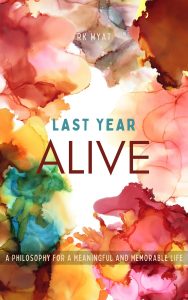Someone somewhere said that what's obvious to you might be genius to others. This is relevant because I find myself thinking that if I know something, everyone else knows it as well. If I know high level calculus, everyone else knows as well; if I know about cognitive biases, everyone else knows as well; if I've read Dostoevsky, everyone else has as well.
(Interestingly enough, this doesn't work the other way: if I don't know all the capitals of all the countries in the world, everyone else knows them; if I can't recite the main events of World War I, everyone else can, and so on.)
This mindset of "if it's obvious to me, it's obvious to everyone" has lead me to think that if I have written a post in the past about my favorite self-help hacks, I shouldn't list them again in a newer post.
Sure, if that original post was written yesterday. But I don't remember the last time I talked about this subject. So here goes, a 2024 list of my favorite self-help hacks!
My favorite self-help hacks, 2024 edition
- The NAL, or Next Actions List. Make a list of all the things you need to accomplish in the near future - literal tasks, regardless of the area of life - and keep it with you at all times. Mark each task with a deadline. Review the list several times a day, pick a task to complete, and strike it out when it's done. Update the list whenever a new task presents itself.
- One minute is better than no minute. If you made a pact with yourself that you'll exercise every day, but today you just don't have the time to go to the gym, take one minute to plank or do squats. One minute of exercising is still exercising.
- Don't break the chain. If you've resolved to do something every single day, print out a paper with slots for each day and give yourself a check mark there every time you do the thing. Keep the paper somewhere where you can see it every day. Once you see the chain of check marks grow, breaking it will become harder than doing the thing that earns you a new check mark.
- The QLIQNO principle, or "quality in, quantity out". I think that quality output, while desirable, can put you off from ever even starting. Begin by focusing on quantity output. Quality will come with the practice.
- The ugly frog eating contest. After writing down all the tasks you want to complete on any given day, review the list and pick the one you want to do the least, and do that first. Everything else after that will feel easy by comparison.
- Make virtue easy and failure inconvenient. For example, a few years ago when I was still studying in university, my goal was to go to the gym regularly, even if I didn't always have the energy after my classes. Exhausted after a day of studying, I would take the bus the route of which could take me both to the train station (that would take me home to rest) and to the gym. However, the stop for the train station was earlier than the stop for the gym. To go home to rest, I'd have to get up and get off the bus; to go to the gym, I could sit and relax a good while longer while waiting for the gym stop. I used my own exhaustion and laziness as a tool to go to the gym.
- Next best idea. Sometimes you get a great idea, but you're afraid to use it because you think that it will be your last good idea - that if you use it, your life will be over, either physically or psychologically. But good ideas are meant to be used! To avoid feeling this approaching death while actually getting to use your ideas, you could choose to only use your second best ideas. The "best" idea stays untouched and protects you from death. What's more, eventually you'll come up with an idea that's even better than the old "best" idea, allowing you to downgrade your old best idea to second best, allowing you to use it.
- Paying the price. Whenever something is free, you don't assign any value to it. If you want to make yourself commit to something, find a way to pay money for it. The higher the price, the more you'll value it, and thus the more you'll do to make it work.
- Finishing. Nothing gives me a high like finishing a project, but sometimes I must remind myself that a finished and shipped project is infinitely better than a perfect unfinished project. Focus on finishing. You'll get more done and make a bigger impact in time. Perfect will come with the habit of finishing.
- The numbing effect. Make hard things an integral part of your everyday life so that you get used to them and will soon no longer think of them as hard; make easy things such a rare occurrence that they begin to feel special. You'll become a high achieving superman in no time (while feeling that your life is easy AF).
RK out.

